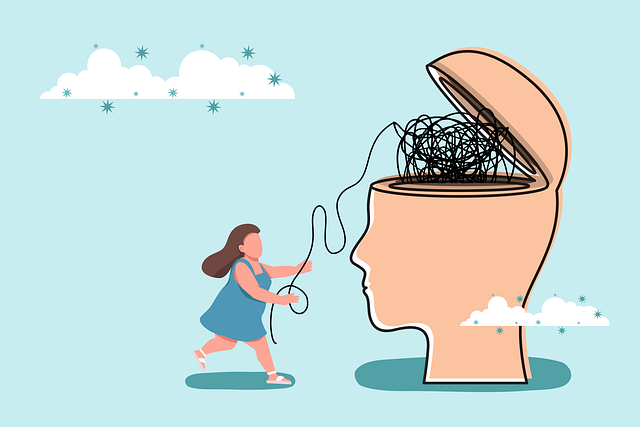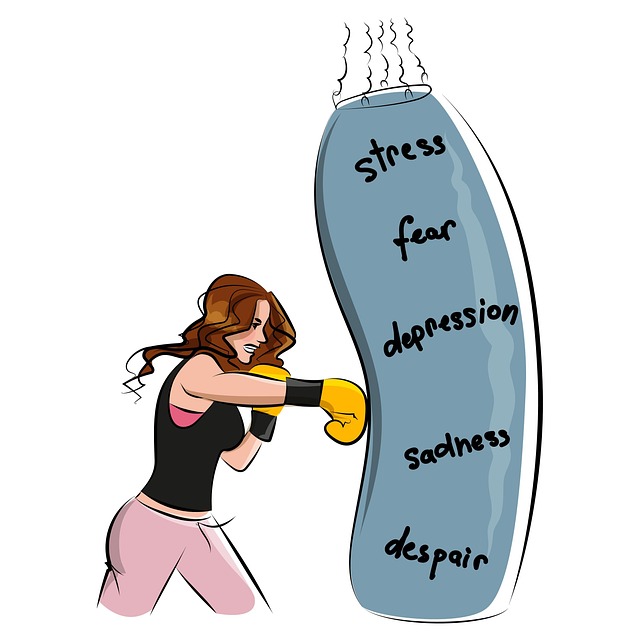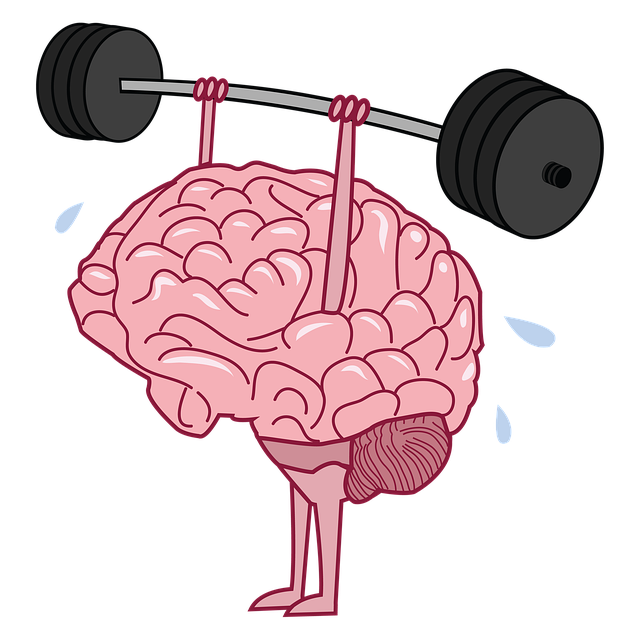TL;DR:
Therapy for young adults with Autism Spectrum Disorder (ASD) is key to mitigating substance abuse risks, driven by social communication difficulties and isolation. Effective strategies include early intervention, empathy-building, self-care routines, mindfulness, and healthy lifestyle choices. A supportive environment, facilitated by family involvement and guided by therapists, along with school and community programs, creates a robust network of support. Evidence-based therapies like CBT and ACT address behavioral, emotional, and coping challenges, while comprehensive risk assessment tools personalize treatment plans. Preventative measures, including Mental Health Education Programs, promote emotional well-being, self-awareness, and healthy decision-making from a young age, significantly reducing substance abuse risks.
Substance abuse among young adults with autism spectrum disorder (ASD) poses unique challenges. This article explores comprehensive risk reduction strategies tailored to address these complexities. We delve into understanding the heightened vulnerability to substance misuse, especially in adolescence. Key aspects include creating a supportive ecosystem involving families, schools, and communities, implementing evidence-based therapies for behavioral modification, and adopting preventative measures with early intervention to foster long-term recovery. For effective support, therapy for young adults with ASD is pivotal in navigating these challenges.
- Understanding Substance Abuse Risks for Young Adults with Autism Spectrum Disorder
- Creating a Supportive Environment: Family, School, and Community Involvement
- Evidence-Based Therapies for Risk Mitigation and Behavioral Modification
- Preventative Measures and Early Intervention Strategies for Long-Term Success
Understanding Substance Abuse Risks for Young Adults with Autism Spectrum Disorder

Understanding Substance Abuse Risks for Young Adults with Autism Spectrum Disorder (ASD) is a critical aspect of implementing effective risk reduction strategies. This demographic faces unique challenges due to both their condition and the potential for substance abuse as a coping mechanism. Early intervention and tailored support are key; therapy for young adults with ASD can focus on empathy-building strategies, aiming to address social communication difficulties that may contribute to isolation and increased risk.
By incorporating self-care routine development for better mental health into therapeutic practices, professionals can empower individuals with ASD to manage stress and emotions. This includes teaching mindfulness techniques and promoting healthy lifestyle choices. Applying mind over matter principles helps these young adults challenge negative thought patterns and develop resilience, thereby reducing the allure of substances as a means of escape or self-medication.
Creating a Supportive Environment: Family, School, and Community Involvement

Creating a supportive environment is a cornerstone in risk reduction strategies for substance abuse, especially for young adults with Autism Spectrum Disorder (ASD). Family involvement plays a pivotal role by fostering open communication and understanding. Therapists can guide families on empathy-building strategies that promote emotional support and reduce social isolation, common challenges faced by individuals with ASD. By integrating these strategies into daily routines, families can create a safe haven where mental wellness is prioritized.
School and community settings also contribute significantly. Schools can implement programs that enhance peer relationships and teach effective mood management techniques tailored to the unique needs of students with ASD. Community initiatives focused on raising awareness about substance abuse risks and promoting alternative activities can further deter potential abuses. These collaborative efforts create a network of support, enhancing the overall resilience of young adults navigating their mental health and social environments.
Evidence-Based Therapies for Risk Mitigation and Behavioral Modification

Evidence-based therapies play a pivotal role in mitigating risks associated with substance abuse among young adults on the autism spectrum. These tailored interventions focus on addressing underlying behavioral and emotional challenges, aiming to enhance self-esteem and promote emotional well-being. Therapies such as cognitive-behavioral therapy (CBT) have proven effective in teaching individuals coping mechanisms to manage stress and triggers for substance use. By combining CBT with other evidence-based approaches like acceptance and commitment therapy (ACT), professionals can help young adults develop a stronger sense of self-awareness, self-acceptance, and personal values, which are crucial for making informed choices.
For mental health professionals assessing risks within this population, it’s essential to incorporate comprehensive risk assessment tools that consider both autism-related traits and substance use patterns. This dual approach ensures a nuanced understanding of the individual’s needs, allowing for personalized treatment plans. By integrating self-esteem improvement techniques and emotional well-being promotion strategies into therapy, professionals can empower young adults on the spectrum to navigate challenges more effectively, reducing the likelihood of substance abuse as a coping mechanism.
Preventative Measures and Early Intervention Strategies for Long-Term Success

Preventative measures and early intervention play a pivotal role in mitigating substance abuse risks, especially for vulnerable populations like young adults with Autism Spectrum Disorder (ASD). Tailored therapy programs focused on emotional well-being promotion techniques can significantly enhance resilience. These strategies aim to equip individuals with coping mechanisms, fostering self-awareness and healthy decision-making skills from an early age.
Implementing Mental Health Education Programs Design specifically catering to the needs of young adults with ASD is crucial. Such initiatives raise awareness about substance abuse risks, provide crisis intervention guidance, and promote open dialogue. By addressing emotional challenges proactively, these measures contribute to long-term success in preventing substance abuse, ensuring a brighter future for at-risk individuals.
In addressing the unique challenges faced by young adults with Autism Spectrum Disorder (ASD), implementing comprehensive risk reduction strategies is paramount. By fostering a supportive environment that incorporates family, school, and community involvement, we can significantly mitigate the risks associated with substance abuse. Integrating evidence-based therapies for behavioral modification and early intervention, alongside preventative measures, ensures long-term success in supporting this vulnerable population. Specifically, tailored therapy for young adults with ASD proves to be a game-changer in navigating these complex issues, offering hope and improved quality of life.














